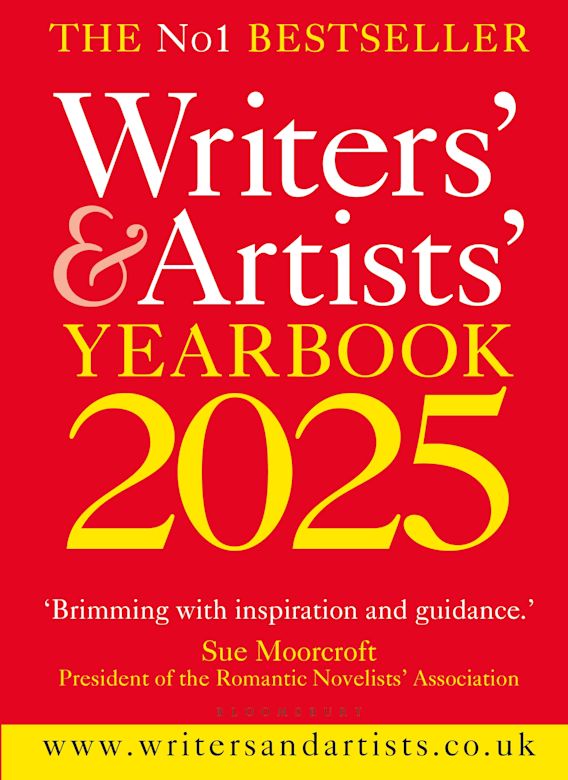In this extract from her article for the Writers' & Artists' Yearbook 2025, poet and comic book writer Chrissy Williams talks about the hybrid art form of poetry comics.

I’ve always been interested in messing about with art. As a writer and editor of both poems and comics, it feels inevitable that I’d get drawn into mashing together the two art forms at some point, to see what they could offer each other. As with all hybrid art forms, poetry comics take a little from each side, but ultimately create something that is new, different and wholly their own.
Poems are, usually, made of words. Some poems are designed primarily for the ears, and some are designed primarily for the eyes. As they make the poem, poets decide whether it will live on a page, and how much they want to engage with the words visually. Some poems can be structured very elaborately or formally. Some can be a stream of free-flowing text. Some can look like a spray of isolated words, scattered across the page like blossom. Some can be considered visual artworks in and of themselves.
The words in a poem are sometimes straightforward – purely descriptive or narrative – and at other times more complex. Poems can use words to capture or enact complicated moments, or thoughts, or ideas, about experience or about language itself. William Carlos Williams said a poem is ‘a machine made of words’. Mark Yakich said: ‘a poem helps the mind play.’
Comics are, usually, made of pictures. More specifically, comics are visual sequences. They often include text as captions or dialogue, but if all you’re reading in a comic is the words, you’re missing the point. The pictures must also be read, both individually and in relation to each other. As Eddie Campbell said: ‘The drawing is the story; it doesn’t illustrate it.’ If the text and the art are just repeating each other, it’s a bad comic.
[…]Poetry comics are a tremendous vehicle for evoking the sorts of messy impulses that drive us all to be creative in the first place. They liberate the poet in us from the constraints of language. They liberate the artist in us from straightforward narrative. They can take us somewhere much stranger, much more quickly.
Chrissy Williams’ writing has been featured on BBC radio and television, and her full poetry collections are Bear (Bloodaxe 2017) and Low (Bloodaxe 2021). Her debut comic Golden Rage came out from Image Comics in 2022. As an editor, she is best known for her work on Die, The Wicked + The Divine and Superfreaks. She edits the online poetry journal Perverse and has run numerous poetry comics workshops. She co-edited Over the Line: An Introduction to Poetry Comics (Sidekick Books) with Tom Humberstone in 2015.
This is an abridged version of an article taken from the Writers' & Artists' Yearbook 2025.
Comments